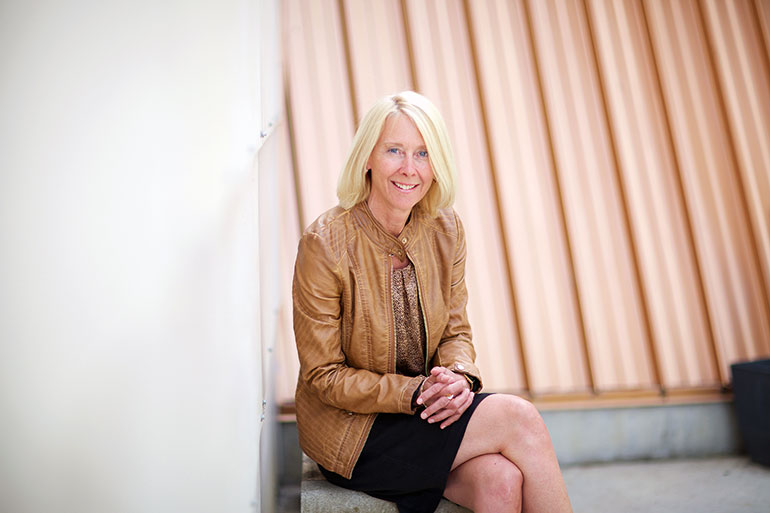
UBC Assoc. Prof Barb Pesut is a Canada Research Chair in Health, Ethics and Diversity.
Volunteers can help improve quality of life for seriously ill adults
A UBC Okanagan professor’s idea to improve quality of life for seriously ill adults is spreading across the country.
N-CARE—navigating, connecting, accessing, resourcing and engaging for adults with serious illness—was introduced by Assoc. Prof. of Nursing Barbara Pesut in cooperation with her colleague Dr. Wendy Duggleby from the University of Alberta. The program is designed to help people with serious chronic illnesses navigate community services and resources with trained volunteers.
Pesut—who is a Canada Research Chair in Health, Ethics and Diversity and an assoc. professor in UBC Okanagan’s School of Nursing—says the program is scaling up.
“The N-CARE service has generated such interest that after the pilot study in 2015, we had nine additional sites agree to implement the program. This has the potential to assist thousands of aging Canadians,” says Pesut. “We believe N-CARE holds promise for improving the lives of adults with serious illness through a compassionate community approach.”
N-CARE meets the complex needs of an aging population, she explains. “We have an incredible resource of volunteers in Canada who can provide significant support to older adults through a ‘neighbours helping neighbours’ approach.”
N-CARE volunteers, who have training in accessing community services, provide regular in-home visits for adults who have serious illnesses. The volunteers help make connections with the supports available in their community that improve quality of life. They can also mitigate issues such as a lack of social support, loneliness and isolation, poor information about available resources, and feeling overwhelmed with decision-making.
“Older adults living with serious illnesses have unmet needs that result in poor quality of life,” says Pesut. “But, despite the challenges they experience because of their health issues, many of these adults want to continue to be engaged and productive—to give back to their communities. Volunteers help them do that.”
Because of the early successes, the Canadian Cancer Research Society is now providing funding to implement N-CARE through partnerships between hospice societies and community oncology clinics in Cranbrook, Vernon, and Smithers. The Canadian Institutes of Health Research is helping to implement N-CARE in Nelson, Vernon, Kelowna, and Osoyoos; while in Olds, Alberta and in Truro, Nova Scotia, the program will be implemented in partnerships with hospice societies and primary care providers.
The ultimate goal is to develop policy recommendations for N-CARE and to create a toolkit, which will provide the resources required for hospice societies across Canada to implement volunteer navigation in their communities.
Further information about the program can be obtained by contacting Barb Pesut, at barb.pesut@ubc.ca.
—30—